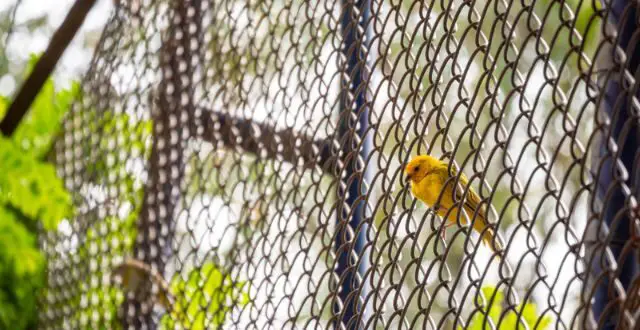Anti-bird netting has become crucial for property owners to protect their investments and to ensure they have curb appeal. Since everybody looks for ways to save money, it’s normal to wonder whether you should attempt DIY anti-bird netting or hire professionals to use commercial materials. What’s going to be the most durable option for your property? Let’s dive into this debate and find out the answer.
Understanding the Basics
Before we embark on the great DIY vs. commercial debate, let’s revisit the roots. Why do we need anti-bird netting? Beyond safeguarding your tomatoes from becoming a neighbourhood bird buffet, these nets are your property bodyguards. It acts as a barrier around vulnerable areas, such as roofs and ledges. Birds will avoid your building if they can’t access these enticing areas. It’s a humane way to prevent nests from being built on your home.
Pros and Cons of Commercial Anti-Bird Netting
Let’s start by considering commercial anti-bird netting. In other words, high-quality materials are installed by experts. There are many reasons to consider using a bird netting service for your home. Let’s take a look at what you need to know.
Advantages
Commercial options boast professional quality and durability. Think of them as the express lane at the grocery store—quick and convenient. Who has the time and patience to wrestle with unwieldy nets? Having experts install the netting ensures that the design is suitable for your building and it’s done correctly. Plus, they use durable materials that have been tried and tested. They understand what works in different situations.
Disadvantages
But, as is often the case, there’s a catch. Commercial solutions might dig a bit deeper into your pocket, and this could be out of your budget. Experts will cost more to use, but you have to consider the long-term benefits of using better materials and a bespoke design. Often, this higher price tag can pay off in the end. Their materials often last for many years without needing to be replaced.
Pros and Cons of DIY Anti-Bird Netting
Now, let’s explore the other option you have. You can take anti-bird netting into your own hands and install it by yourself. You’ll gather the materials and complete the project. There are advantages and drawbacks to this approach.
Advantages
DIY projects are often hailed for their wallet-friendly nature, and the customisation options are as vast as your imagination. Want a net that mirrors the colours of your tulips? The DIY route grants you the creative license to make it happen. You get to choose the materials you want based on your budget and have free reign to install it whenever you want to. This includes quickly if you have a pending bird problem.
Disadvantages
However, a word of caution is needed. While DIY may be gentle on your pocket, the compromise might be on durability. If you don’t select the right materials, they might not last through the British winter. Also, brace yourself for a significant time investment in installation—time that could otherwise be spent leisurely sipping lemonade amidst your flourishing garden. Without prior experience, it can take a while to install and figure out what you’re doing. Don’t forget that it can be dangerous and you must prioritise your safety.
Factors Influencing Durability
Picture this: it’s a stormy night, and your anti-bird netting is your home’s knight in shining armour. Well, this is the way it should be if you’ve chosen high-quality materials. It’s imperative that you select materials that are durable and can deal with weather and temperature changes. If you’re installing the netting yourself, it’ll be up to you to select the best material. The good thing about using an expert service is they already know the answer. Plus, they have the installation techniques to ensure durability.
Conclusion
And there you have it: the great DIY vs. commercial debate unravelled. We’ve explored the highs and lows, discussing the benefits and downsides of each option. Both can work for deterring birds, but you have to ensure you select the right one for your property. Now, it’s time to make your decision and deliberate on the best option for your situation.
Notable things to think about include your budget, needs and future. Namely, you want to choose an option you can afford, combined with something that solves your bird problem and provides you with durability. Whether you’re donning the DIY cape or opting for the commercial knight in shining armour, remember: a bird-free property awaits.
 khamush.com Lifestyle | Motivation | Poems
khamush.com Lifestyle | Motivation | Poems



